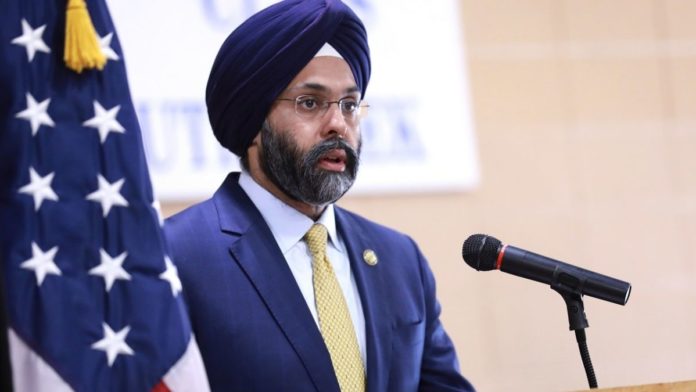It has been reported that the New Jersey Attorney General has taken legal actions against the United States Department of Justice(DOJ) on accounts of not receiving explanatory information about the reinterpretation of the Interstate Wire Act of 1961. The Attorney General for New Jersey, Gurbir Grewal has revealed his concerns about recent revisions being influenced by individual business interests. These alterations will seriously affect the online gambling which to this point has been extremely beneficial for the New Jersey economy.
Looking for Answers
The Attorney General for New Jersey, Gurbir Grewal, led by the inability to gain information through a Freedom of Information Act request with DOJ, decided to file a lawsuit against this federal executive department. Prior to a decision to take legal actions, in February, Grewal had made the official information request in order to gather more info on government’s decision to change parts of the Interstate Wire Act 1961 which refer to interstate online gambling. He also needed to uncover if Sheldon Adelson, a Chairman and Chief Executive Officer for Las Vegas Sands Corporation had any partake in the decision.
Futile Attempts
Even though standard time limit, set by FOIA is 20 days or a month, to this moment, there hasn’t been a response which left no other options for Grewal but to take legal measures.
According to him, online gaming has been legalized in New Jersey for quite some time, becoming extremely important in the economy of New Jersey, and now DOJ is trying to make it all go away. In his opinion, residents of the New Jersey state have the right to know why since it’ll affect them, especially if the decision was made due to a lobbying campaign by an individual, looking to protect his own business interests.
It is widely known that Adelson is a donor to Donald Trump’s campaign and an ally who publicly claims that online gambling will have negative consequences to his company, and cause major problems concerning gambling addictions. Allegedly, he’s been seeking out lobbyist, prepared to help in protecting his bricks-and-mortar operations against the threat which online gambling represents.
On the other hand, regulatory bodies have had an opportunity to use technology in order to thwart attempts by minor players to engage in gaming activities, locate such attempts, and apply money laundering laws.
Reinterpretations and Consequences
In November 2018, DOJ added their new revisions, saying that the Wire Act should be enforced on all online gambling activities and not just sports betting. In other words, it may involve all online gaming with interstate agreements. Previously, the Wire Act referred only to sports betting. However, with latest alterations which should come into practice starting with June 14, some serious damage will be done to iGaming, driving casino as well as poker sites out of business and disabling an opportunity to use shared liquidity, aggregated under various jurisdictions.
Since 2013 when New Jersey legalized online gaming to this day, it’s been revealed that this sector has accumulated $153.23 million in taxes with $2 billion revenues.
According to experts, if the DOJ’s new opinion is interpreted to the letter, it could result in costing states approximately US$220 million. That’s not all; the states will be left without scholarship funds, senior citizens’ services as well as other programs.




